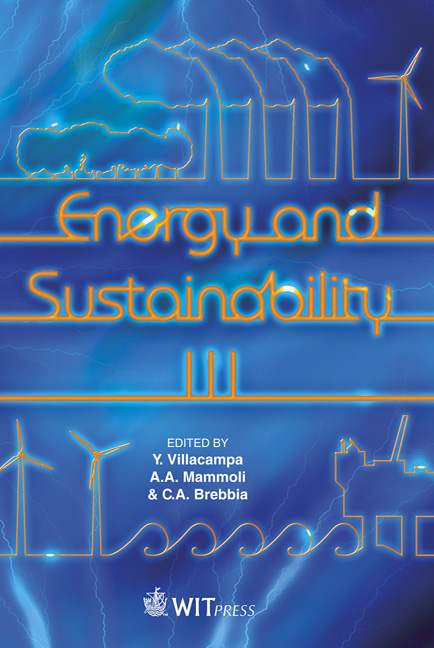Experimental Study Of A Waste Heat Recovery System For Supplemental Heaters
Price
Free (open access)
Transaction
Volume
143
Pages
12
Page Range
437 - 448
Published
2011
Size
1,000 kb
Paper DOI
10.2495/ESUS110371
Copyright
WIT Press
Author(s)
E. Y. Tanbour, R. Al-Waked & M. F. Alzoubi
Abstract
Energy conservation in supplemental heaters using a heat recovery heat exchanger is the subject of this paper. A waste-heat-recovery heat exchanger is developed for supplemental heaters (natural gas-fired fireplaces). Using experimental tools, the effectiveness of a condensing heat recovery system on capturing majority of waste heat is studied. The goal is to explore an economically feasible and a manufacturable heat exchanger that recovers waste heat in such supplemental heaters. The research has shown viable compact heat exchanger designs that significantly reduce the fuel consumption by the heater. Keywords: efficient heating, compact heat exchangers, waste heat recovery, supplemental heaters, gas-fired fireplaces. 1 Introduction Energy conservation and management for different applications has been the subject of several studies in the past years and it continues to be an important research topic. This is due to the limited energy resources and energy price from one side and the environmental issues from the other side. Using exhaust flue gas as a heat recovery source is a common approach and it has been an essential part of steam power plants. While its primary purpose is to transfer exhaust gas heat to steam, an important secondary function is to reduce emissions from combustion exhaust [1]. Mihelic-Bodanic and Budin [2] presented an energy optimization for production of a thermoplastic material, using boiler flue gases, which leads to saving about 8% on the fuel consumption. Maksimov et al. [3] studied the possibility of using exhaust gas in power plants to generate steam for oil
Keywords
efficient heating, compact heat exchangers, waste heat recovery, supplemental heaters, gas-fired fireplaces





